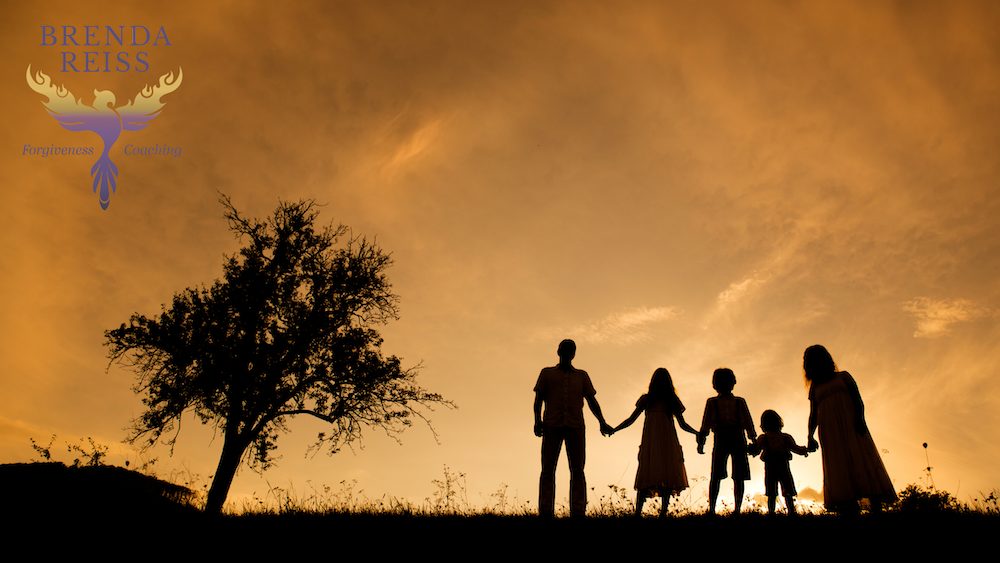Family can be our greatest source of joy, but sometimes, it’s where our deepest wounds come from. Many conflicts aren’t just about the present. They’re tied to unresolved, often inherited, past issues. These old wounds can quietly affect how we connect. This is how relatives become distant and how family misunderstandings and hurt happen. But here’s the good news: we don’t have to stay stuck in these patterns. Generational forgiveness can heal old wounds. It can bring peace to our families!
Understanding Generational Forgiveness
So, what exactly is generational forgiveness? It’s different from the everyday forgiveness we might think of. While individual forgiveness is about letting go of a specific event or action, generational forgiveness goes deeper. Sometimes, it goes several generations back. It looks at family conflicts sitting under surfaces; you may not even have been born when they happened! Sometimes, these generational wounds go on for decades. It can be an argument that escalated and never got reconciled or even cultural and societal expectations that have been passed down and created tension. Whatever it looks like, these unresolved issues can create emotional distance between family members, often without us even realizing it.
Generational forgiveness helps us break free from these cycles, allowing us to create healthier relationships in the future. It is the first step to creating family harmony and good memories for the future.
The Impact of Unresolved Family Issues
We all know how exhausting it can be when there’s unspoken tension in the room. Everyone feels on edge, and there’s no real enjoyment. Unresolved family issues usually don’t just disappear—they hang around, affecting how we communicate (or don’t), how we connect, and even how we feel about ourselves. Over time, this emotional baggage can lead to strained relationships. Your conversations get shorter and shorter. You connect less. Gatherings start feeling weird; eventually, you may not even attend anymore.
Generational wounds go deeper than that. Unresolved conflicts can perpetuate harmful patterns. For example, a parent may pass down a tendency to react with anger if they grew up in a household where that was the go-to response. This creates a cycle of emotional reactivity. Generational conflicts can and do harm mental health. They may increase anxiety and depression in family members, who may not understand the source of those feelings.
Healing these wounds isn’t just about fixing today’s problems. It’s about breaking the cycle. We must let future generations grow in a more loving, understanding environment.
The Process of Generational Forgiveness
Generational forgiveness isn’t something that happens overnight, of course. It’s a process; like most healing journeys, it takes time, effort, and an open heart. You can take the first steps, and here’s how:
- Recognition: The first step is acknowledging something deeper going on. This means recognizing the conflicts passed down and understanding their origins. Maybe it’s a family argument that’s never been resolved, or perhaps it’s a behavior pattern rooted in a past trauma that no one talks about anymore. It’ll feel weird, but it has to come out in the open.
- Empathy: Once you’ve recognized the issue, it’s important to cultivate empathy for past generations. Understanding what previous generations went through—their struggles, their traumas—can help soften the anger or hurt. Everyone is shaped by their experiences, and offering compassion to those who came before us can shift our perspective in powerful ways. The most important thing to remember is that people in the past were likely doing the best they could with the situation they had. Remembering to give grace goes a long way in helping heal old family wounds.
- Dialogue: Open, honest communication is key. This part can feel scary, especially if you’re the first to bring up an issue buried for a long time. In fact, it’s likely what prevents generational wounds from being forgiven because few people want to do the hard work of talking. It’s important to create space for everyone to share their feelings. Start with curiosity and a willingness to listen—without judgment.
- Forgiveness: Forgiveness is a choice. It doesn’t mean excusing bad behavior or pretending the hurt never happened. Instead, it’s about releasing the anger and resentment that keeps you stuck. It’s a way of saying, “I’m not going to carry this pain anymore. I’m not going to let this color my family’s future.”
- Reconciliation: After forgiveness comes reconciliation. This is about rebuilding trust and strengthening family bonds. It won’t happen all at once, and that’s okay. With time and effort, you can create a stronger, healthier connection. Forgiving others is more for you than anyone else, and you’ll know you did your best to work toward reconciliation.
Please note: In some cases, reconciling is not safe, and that’s okay. Sometimes, other family members do not wish to reconcile, and that’s okay, too. It is about honoring each other and knowing that generational work can be done through us.
Techniques and Practices for Facilitating Generational Forgiveness
Healing old wounds often requires more than just good intentions and hard work. Here are some practices I’ve found that can help you and your family work through generational forgiveness:
- Family Meetings: Organizing a family meeting can be a great way to get everyone on the same page. These discussions allow family members to express their feelings, share their perspectives, and start working through the issues that have been lingering. Setting ground rules for respectful communication ensures everyone feels safe sharing.
- Mediation and Therapy: Sometimes, family issues are too complex to navigate alone. Seeking help from a family therapist or mediator can provide a neutral space where everyone feels heard. Therapists can help guide the conversation productively and offer strategies for healing.
- Journaling and Letter Writing: Writing can be a powerful tool for family members who find it hard to express their feelings out loud. Encourage your family to journal about their experiences or write letters to each other. Putting thoughts and feelings into words can bring clarity and help release pent-up emotions.
- Storytelling: Sharing family stories can help bridge the gap between generations. By learning more about what past generations went through, you gain a new understanding and empathy for their actions and struggles. It also helps create a sense of connection as you realize how your family’s history has shaped who you are today.
- Rituals and Ceremonies: Creating a symbolic act of forgiveness, like a family ceremony or ritual, can be a meaningful way to mark the healing process. This could be something as simple as a family dinner where everyone shares something they’re grateful for or lighting candles to represent letting go of past hurts.
Challenges in Achieving Generational Forgiveness
Of course, this process can be challenging. Family dynamics can be complicated because people are people. It’s normal to face resistance, especially if family members don’t want to revisit old wounds. Some may feel defensive, while others may not want to stir up past pain. Some people really hold onto grudges because they’re all that’s known. It’s common to struggle with deeply ingrained beliefs that make forgiveness impossible.
It’s important to remember that healing takes time. Be patient with yourself and your family. Even if progress is slow, each step forward matters—it really does. Creating a supportive environment where family members feel safe to express their feelings is the key to any more growth, and if you keep showing up with empathy and a willingness to listen, you’ll make progress, even within your own nuclear family.
The Benefits of Generational Forgiveness
When families commit to generational forgiveness, the benefits are life-changing. Relationships strengthen. Families share things that only family members can. Family members feel like they belong to something bigger, which helps them develop greater emotional resilience and peace.
But even better, forgiveness also helps break the cycle for future generations. When you facilitate healing old wounds, you create a healthier environment for the next generation to grow up in—one rooted in love, understanding, and connection. Everyone wins.
Generational forgiveness offers families the chance to heal together.
Families can break free from the patterns of the past and create a brighter, happier future for all. When we are brave enough to face old generational wounds head-on, we create the opportunity for deeper connections and peace within our family–at every generational level.






0 Comments